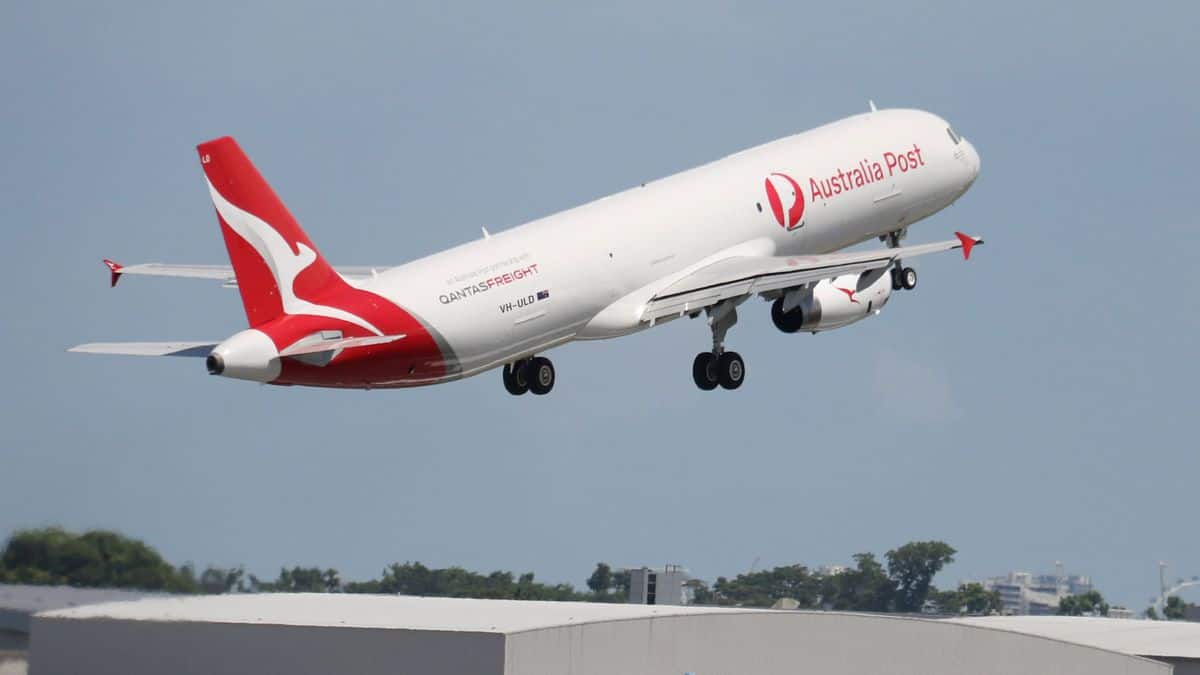ST Engineering, a global technology defense and engineering group based in Singapore, on Tuesday announced an agreement with state-owned investment company Temasek Holdings to establish a joint venture for leasing freighter aircraft.
The company’s aircraft and engine leasing unit, which currently manages passenger aircraft, is expanding its scope because of the strong outlook for the air cargo market, which is experiencing record-high freighter utilization, rapid growth in e-commerce demand and higher cargo yields.
The move gives ST Engineering the ability to monetize demand for freighters in two ways: through touch-labor on conversions and leasing aircraft.
The joint venture has a five-year goal of building a portfolio of assets worth about $600 million by purchasing older passenger aircraft and converting them into freighters. ST Engineering said it will add wider doors, reinforce the main deck flooring, block out the windows and make other structural changes to handle heavy cargo, and also serve as the leasing manager.
The portfolio will primarily consist of narrowbody aircraft. The joint venture said it expects to purchase passenger aircraft at lower prices, using a combination of equity and debt, because the early retirement of many aircraft by airlines during the pandemic crisis has increased the supply and lowered values.
ST Engineering is an experienced conversion shop, having redelivered more than 400 aircraft in the past 25 years. Through its joint venture with Airbus, Elbe Flugzeugwerke (EFW), the company retrofits the A330, a medium widebody aircraft, and the standard-size A321.
The A321 passenger-to-freighter program has only been commercially active since September, when EFW delivered the first plane to Qantas Freight to support Australia Post. Last week, lessor GTLK Europe ordered four of the planes, which are drawing interest from express delivery and regional carriers with daily short-haul shuttle routes because of their fuel efficiency and optimal size for parcel operations.
Turkish cargo operator MNG Airlines on April 1 ordered two A330-300 converted freighters from EFW, which has already begun work on the first aircraft at its facility in Dresden, Germany. The A330-300 converted freighter has newer technology and is more fuel efficient than the Boeing 767 and A300 freighters in its class.
The joint venture gives ST Engineering more avenues for earning revenue from freighter conversions beyond simply reconfiguring the airframe.
Boeing (NYSE: BA), Airbus and a host of independent aerospace engineering companies have heavy order books for freighter conversions and are adding more production capacity.
Consultancy Oliver Wyman estimates the number of cargo aircraft is expected to grow 2.4% annually through 2031, on par with the 2.3% annual growth rate of the previous decade. More than 750 freighter conversions are forecast during the period, a 28% increase.
Boeing’s 20-year forecast calls for 4% annual growth in cargo traffic with the need for 1,500 converted freighters through 2039.
Click here for more FreightWaves/American Shipper stories by Eric Kulisch.
RELATED NEWS:
Trans-Atlantic rivalry brews over Airbus A321 freighter
Boeing, IAI expand production lines for 737, 777 freighter conversions
Amazon airline ATSG touts red-hot business for cargo jet leases
Titan Airways to operate world’s second A321 converted freighter











